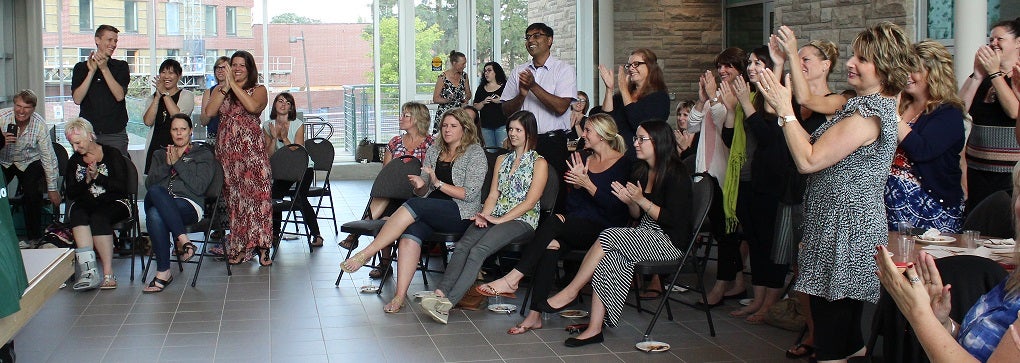
The School of Social Work, located at Renison University College, seeks to reflect a diverse student population and welcomes applications from qualified individuals of all ages, gender identities, cultural, racial, ethnic, and religious backgrounds, sexual orientations, and abilities.
All degrees are conferred to our graduating students by the University of Waterloo.
Bachelor of Social Work (BSW)
The Honours Bachelor of Social Work is one of two professional degree programs at Renison. The BSW program prepares students for a generalist social work practice that is critically reflective, competent, and informed by a social justice platform.
All BSW students graduate with a degree from the University of Waterloo, Faculty of Arts.
Master of Social Work (MSW)
The Master of Social Work (MSW) Program is the second professional degree program available at Renison University College and prepares students for a social work practice that specializes in health. The MSW program views health holistically which means that students are challenged to consider how social, cultural, personal, physiological, structural, and political implications shape individual, community, and global health experiences.
All MSW students graduate with a degree from the University of Waterloo, Faculty of Health.
Mission of the School of Social Work
The School of Social Work prepares social work practitioners through an accessible and inclusive curriculum, at both baccalaureate and masters levels, in a learning environment that fosters caring and ethical social work practice within a local and global context. The School is committed to positive social change through the principles of justice, equity and respect for diversity.

Our Bachelor of Social Work program and our Master of Social Work program are accredited by the Canadian Association for Social Work Education.
The School of Social Work commits to the Calls to Action that the TRC has articulated.
With regards to Call #1, we commit to adequately preparing students to engage with Indigenous peoples and communities in ways that can decenter colonial experience/knowledge/identity. While there are courses in both the BSW and MSW program that pay particular attention to the learning that the Calls to Action call for, we recognize that our work continues as we bring the learning and anticolonial worldviews across our entire curriculum, programming, and community building. The Beyond 94 report last updated in March 2025, is an important reference, indicating the work that is still to be done. We commit to addressing these ongoing calls, bringing students’ and educators’ attention to wellbeing, health and social issues that are pertinent learning that must shape the future practices of students, educators, and researchers at the School of Social Work.
We commit to continuing to pay heed to the high number of Indigenous children being taken into care (CTA #1) and to the overrepresentation of Indigenous youth in custody (CTA#38), to critique and develop better ways to address these injustices through curriculum and research. We commit to bringing ongoing change to our admissions, assessment, and pedagogical approaches, to contribute to the elimination of education and employment gaps for Indigenous peoples (CTA # 7,10, & 11). We commit to examining our own processes for community building and community harm with consideration of restorative justice principles. We recognize that as a School we are on a path towards decolonization: our commitment as we continue on this path is to incorporate the TRC Calls to Action across our systems and spaces.
Honouring Missing and Murdered Indigenous Women, Girls, and 2SLGBTQQIA+ People
The School of Social Work stands in solidarity with the families, communities, and friends of Missing and Murdered Indigenous Women, Girls (MMIWG), and 2SLGBTQQIA+ people. We recognize their ongoing fight for justice and accountability in the face of heartbreaking violence and loss, often without answers.
Indigenous women make up just 4.3% of Canada's population but account for 16% of all female homicides and 11% of missing women. These numbers highlight the ongoing systemic violence that is rooted in colonialism, systemic racism, and gender-based genocide.
We are committed to challenging these injustices through education, research, and advocacy. Colonial violence at the intersection of Indigeneity and gender is deeply tied to oppressive systems like capitalism, neoliberalism, cisheteropatriarchy and the lasting impact of colonial policies. We are dedicated to pushing for systemic change and upholding the Calls to Justice from Reclaiming Power and Place: The Final Report of the National Inquiry into Missing and Murdered Indigenous Women and Girls.
We pledge to work in true solidarity with Indigenous communities, focusing on key areas: cultural rights, wellbeing and health, human security, and justice. Our efforts will continue until no more Indigenous women, girls, and 2SLGBTQQIA+ people are stolen from their families and futures.